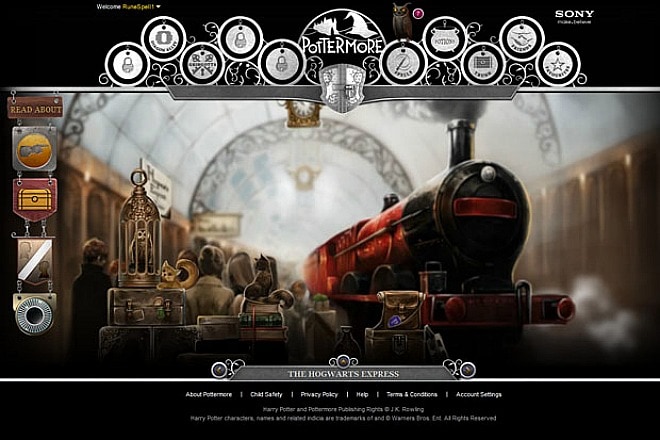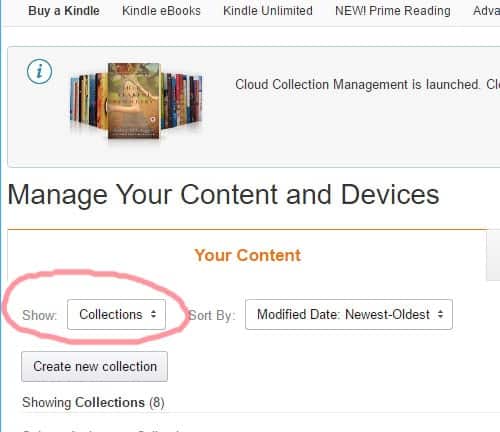Pottermore is an Experiment Which Probably Cannot Be Replicated

PaidContent held their conference earlier this week, and Pottermore was one of the hot sessions. I couldn’t go (no press pass), but I did follow the stories about it. I’ve been thinking about the assumptions everyone is making about Pottermore’s business model, and I’m beginning to think that it’s not one which anyone else will be able to copy.
Everyone is talking about how Pottermore is selling their own ebooks while still getting the major platforms (Kindle, Nook, Google) to support the ebooks inside each ecosystem. As panic over Amazon grows, the Pottermore model is being hailed as a way to limit Amazon’s power and let publishers regain control (something they lost in the 1970s, but who’s quibbling).
Unfortunately that idea tends to fall apart when you look at it too closely.
Frankly, none of the major publishers are in quite as strong a position as Pottermore.
Pottermore had 2 things going for it when they sat down with Amazon. The Harry Potter ebooks were still hot even 4 years after the series ended, and no one had them anywhere.
The Harry Potter ebooks were the superstars of 2011, and that let Pottermore write their contract. These were books that Amazon wanted to get on any terms possible, and that gave Pottermore a negotiating position no one can match. Pottermore literally could have gotten up from the table at any time and Amazon knew that. What’s more, it wouldn’t have cost Pottermore any money to do so. All that pressure likely gave Amazon a reason to give in on the point about selling.
And Pottermore had a third point in their favor; they’re tiny. The 7 titles in the Harry Potter series might have generated millions in sales but it’s only 7 titles, not 700 or 7 thousand. It was a lot easier for Amazon to swallow the loss of 7 titles than it would be if they were losing out on 7 thousand.
As great as this business model has been for Pottermore, I seriously doubt that any of the major publishers will be able pull off the same trick. They’re too big and their content is already in the Kindle Store.
Let’s say Macmillan decides to copy Pottermore’s trick. They tell Amazon the next time the contract comes up that Amazon won’t be selling Macmillan ebooks anymore, just handling them. Take it or leave it.
If you put yourself in Amazon’s position, you’ll probably see why they’d choose to leave it. They’d be getting all the overhead but none of the income. That’s just not worth it, so if a publisher decided to walk Amazon might let them. Yes, it’s going to hurt Amazon but they would be in a lose-lose situation so there isn’t much of a reason to go along. (Oh, and don’t think anyone smaller than a major publisher could even try this ploy; Amazon would tell them to go piss up a rope.)
On the other hand, Amazon might let publishers go for the Pottermore model in exchange for a service fee. In fact, that might even be how Pottermore talked Amazon into the idea. Amazon might be making a little bit of money off the deal. We don’t know, but it is possible.
But if I were Amazon and Macmillan wanted to go for the Pottermore model, I’d ask for a service fee equal to about twice what Amazon is getting from Macmillan now. the amount would get talked down, but I doubt Amazon would come out behind on this new deal.
In any case, I have to say that I truly hope the Pottermore model doesn’t spread. At best it would lead to a balkanization of the ebook market, making it more difficult to buy ebooks. What’s more, I seriously doubt that the major publishers could pull off a single ebookstore which supported all the parts of the conglomerate. We’d more likely see the site support maybe half the publishing houses and imprints.
What’s more, I’m not certain that any of the majors could build an ebookstore in a reasonably amount of time (aside from Harlequin, who had to come up with a lot of innovations on their own). Take Macmillan, for example. They talked big about launching an ebookstore in 2008. I cannot find any indication that it ever happened and if it exists it is certainly not one of the important ebookstores.
Am I wrong?


Comments
Pottermore is Another Instagram: A Blip, not a Business Model – AdaptWrite June 1, 2012 um 5:54 pm
[…] past couple of months, in the wake of Pottermore’s favourable agreement terms with Amazon. Succinctly addressed by The Digital Reader, Pottermore’s agreement with online publishers means that all sales are pushed through the […]
Rosetta Books Launches Own eBookstore App on iOS, Android – Could This be an Option for Hachette? – The Digital Reader June 5, 2014 um 2:37 pm
[…] I last looked at this idea in 2012 I didn’t think Amazon would like the idea of supporting a publisher’s ebookstore, and 2 […]
Harry Potter eBooks Now Available in the Kindle, Nook Store as Pottermore Abandons Exclusivity | The Digital Reader February 8, 2016 um 2:05 am
[…] Potter ebooks and audiobooks, and many saw that as a club that could be used against Amazon. As I predicted, that proved to be far more hype than substance, but now it turns out that Pottermore was not […]
Piercing the Hype: The Hybrid Author is the New Pottermore | The Digital Reader September 10, 2017 um 1:41 pm
[…] That's pretty much what Pottermore was last year, though I think I was the only one to say so. […]